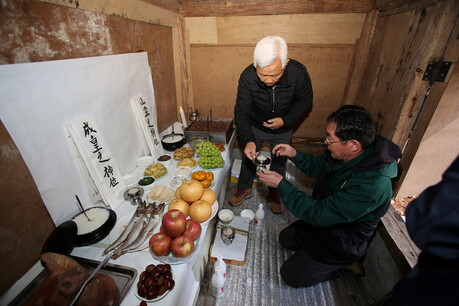Netflix's provocative new series "Aema" boldly confronts the dark history of sexual exploitation and abuse of power that plagued Korea's film industry during the 1980s. The show, starring Lee Ha-nee, revisits Korea's most popular erotic film "Madame Aema" from 1982 while incorporating pointed references to real-life political figures, including former President Chun Doo-hwan, to expose the systemic abuse that female actors faced during that era.
The series doesn't shy away from sensitive material, directly addressing the casting couch culture and late-night banquet halls where female actors were expected to serve as hostesses for politicians. Lee Ha-nee plays Hee-ran, an A-list actor who refuses to appear nude in an erotic production and consequently loses her role to rising talent Joo-ae, portrayed by Bang Hyo-rin. The actress was candid about the challenges of handling such explosive subject matter during the production.
"Rather than literally recreating or reproducing reality, I thought 'Aema' satirized certain moods or atmospheres of the 1980s," Lee explained during a Zoom interview conducted on August 19, just days before she gave birth to her second daughter on Sunday. "At times, it may feel a bit uncomfortable because it's portrayed so directly, but in the case of the banquet hall scene – I interpreted it as being simultaneously very realistic in some aspects and very dramatic and fantastical in others. Still, I think such a scene was necessary."
Lee emphasized that the blend of rawness and theatricality makes the banquet hall episode a crucial turning point in the narrative. "For Aema, that scene was a very significant piece of work. For me as well, it wasn't so much a burden as it was a crucial period that I approached with a sense of importance while filming," she said. The actress stressed the show's central theme of resistance, noting that while "Aema" is deeply rooted in Korean history, its message carries universal relevance.
"I think there are still issues out there that require someone to speak up with courage," Lee stated. "So even though this is really just a drama, if it connects with people who recognize our history of struggle and see themselves as part of that ongoing legacy, I believe viewers around the world will watch it, enjoy it and relate to it." The series aims to shed light on historical injustices while inspiring contemporary audiences to stand against similar forms of exploitation.
On a personal level, Lee, who has been working in the entertainment industry for 16 years, admitted she could relate to her character Hee-ran's complex relationship with the younger actress Joo-ae. The veteran performer acknowledged the natural tension that exists between different generations of actors. "Honestly, there are so many younger actors these days who are just incredibly talented. So yes, I can definitely understand Hee-ran's feelings when she looks at Joo-ae," she confessed.
However, Lee explained that rather than dwelling on insecurity, she channels those feelings into motivation for continuous improvement. "For me, more than dwelling on that kind of insecurity, what really matters is asking myself: How can I act with more seriousness, more depth, without letting go of that commitment?" she said. The actress revealed that she approaches every new project with a sense of urgency and gratitude, never taking her career longevity for granted.
"These days, it's no longer the case that female stars have to retire just because they have children," Lee noted. "But still, I personally approach each project as if it might be my last. Life is unpredictable, and so many variables can come up that prevent you from taking on the next role – I've even seen it happen to people close to me. That's why I treat every single project as precious, as if it might be my final one."
When asked how she might have navigated the film industry during the 1980s as a female actor, Lee reflected on the harsh realities that women in entertainment faced during that era. "I think I would have been a more sharp-edged actor. The 1980s were really the era of erotic films, and I often thought about how exhausting it must have been to live as a female actor during that time," she said. Her research for the role gave her deep insight into the struggles of actresses from that period.
"While researching and watching many works in preparation for 'Aema,' I kept feeling that the senior female stars who acted purely out of love for the craft must have gone through incredible hardships," Lee concluded. "I imagine many of them must have even thought about retiring – not just because of the heavy social pressures, but because of how drained and consumed they must have felt personally." Through "Aema," Lee hopes to honor those who persevered through such difficult circumstances while educating modern audiences about this troubling chapter in Korean cinema history.




























